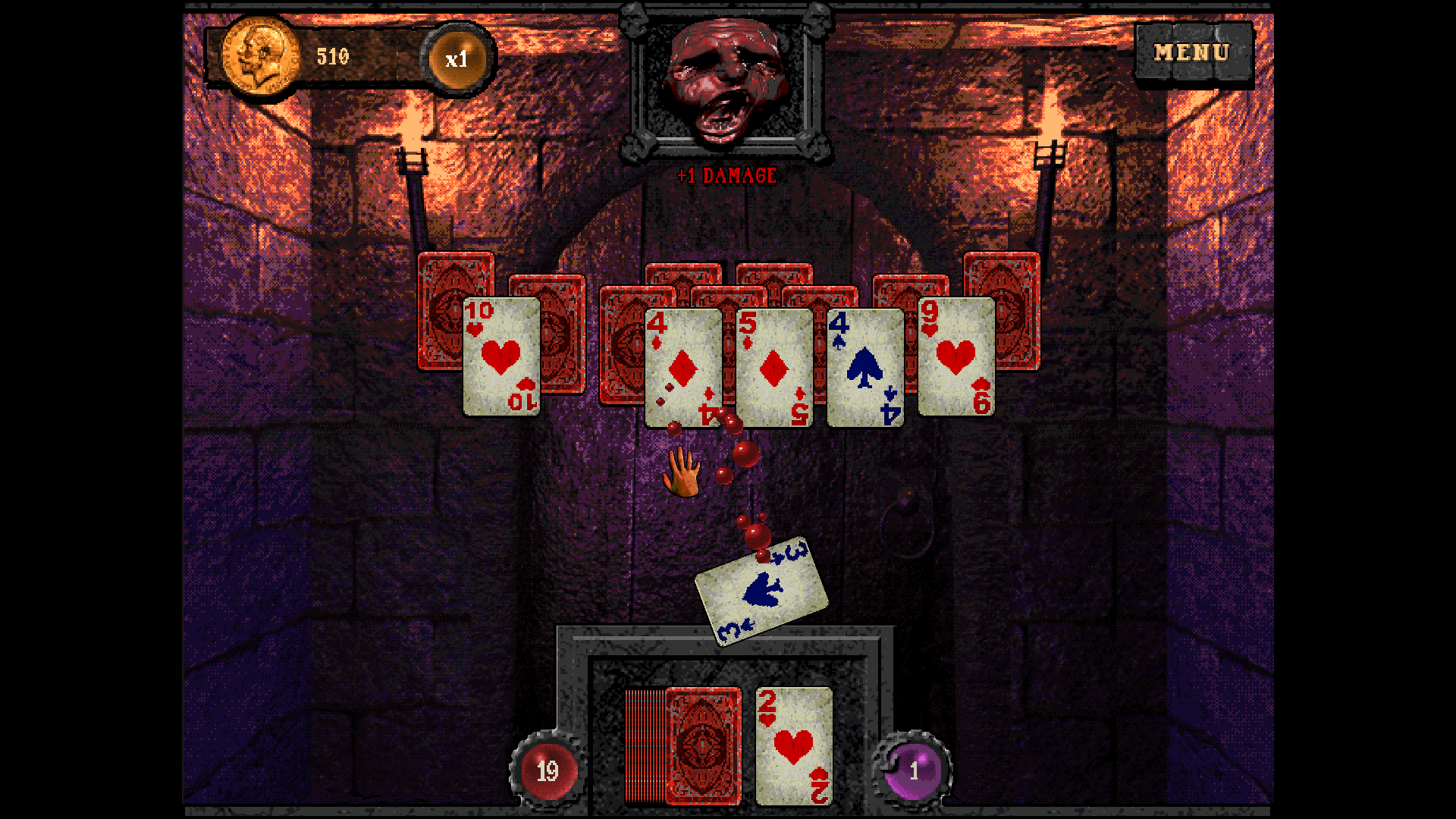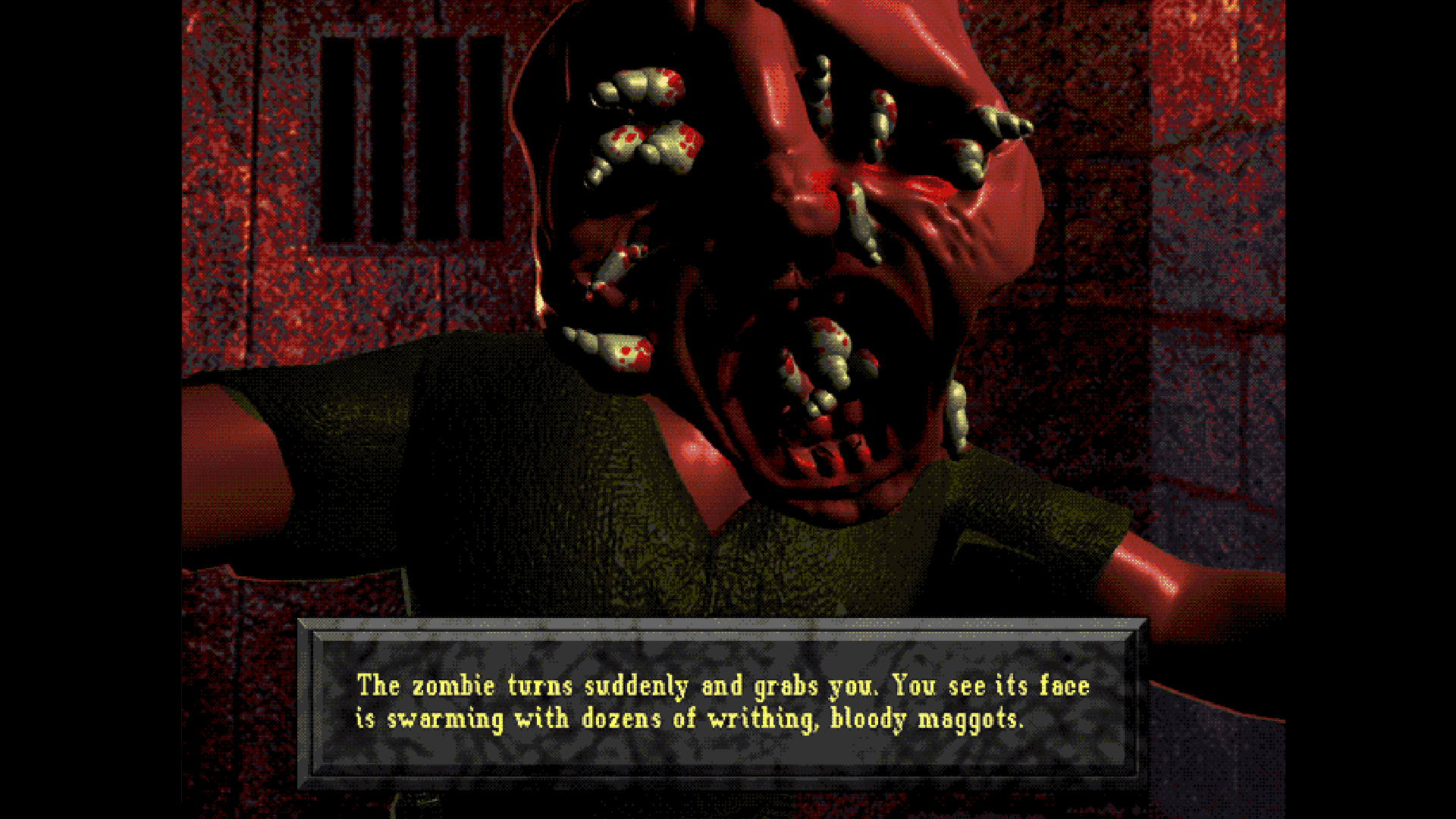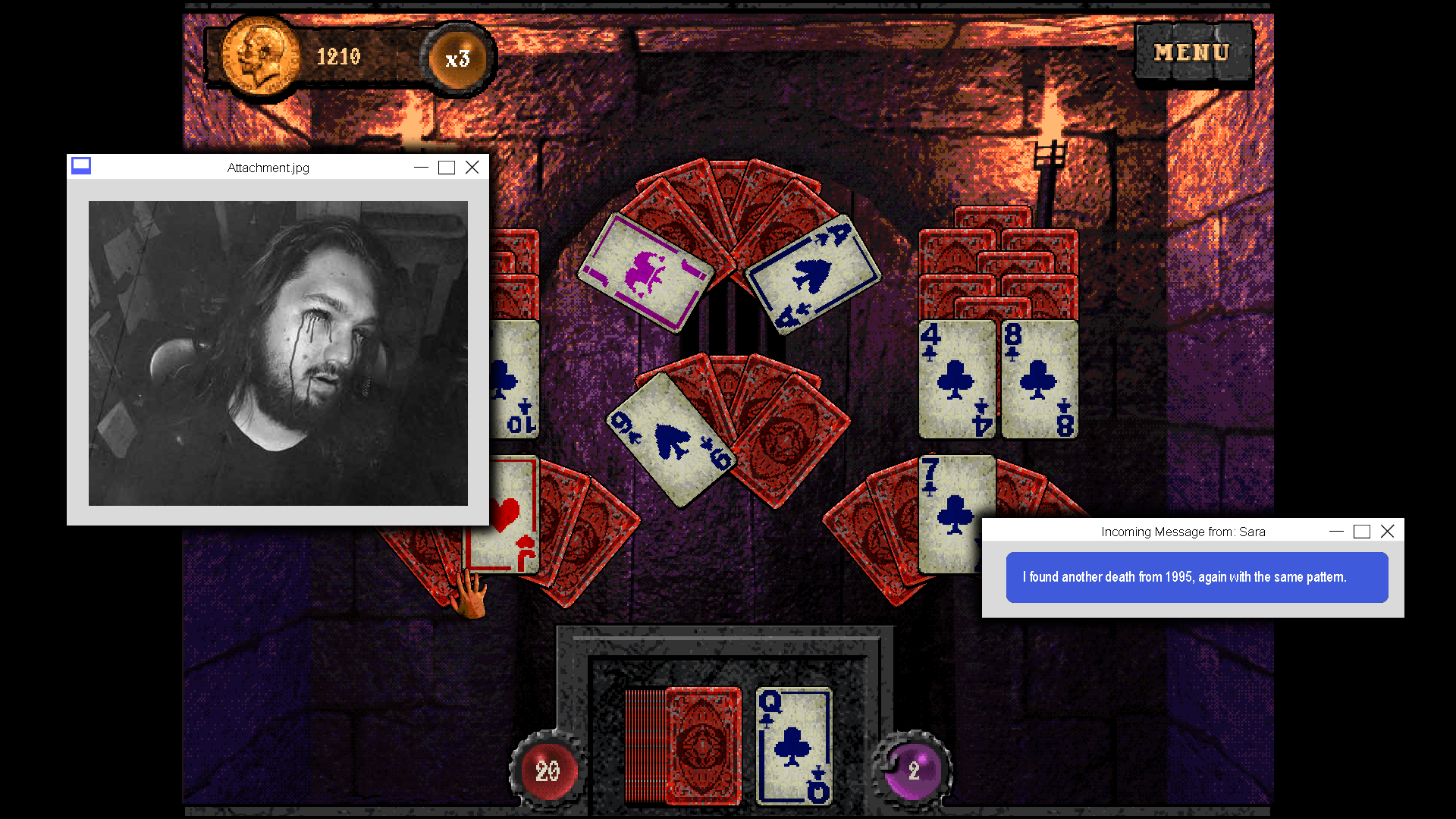Interview with the Developer of Forbidden Solitaire
We first saw Forbidden Solitaire when they did their initial game announcement over on social media. We were beyond stoked to have them in the showcase.
Forbidden Solitaire is a card-slashing horror game about unearthing the contents of a cryptic 1995 CD-ROM that should have never existed. Thank you to Grey Alien Games and Night Signal Entertainment, the creators of Ancient Enemy and Home Safety Hotline for answering my questions.
Can you tell me more about the team behind Forbidden Solitaire?
There’s two teams actually! Forbidden Solitaire represents a collaboration between two small indie studios coming together to combine their strengths - Grey Alien Games and Night Signal Entertainment. Jake Birkett and Helen Carmichael from Grey Alien Games have been making games in the casual space for roughly 20 years now, most notably having created several critically acclaimed solitaire RPG titles including Regency Solitaire, Shadowhand and Ancient Enemy. They’ve really perfected their craft over the course of their careers and are leveraging those decades of knowledge to design Forbidden Solitaire’s card-based combat and puzzles.
Meanwhile the narrative, visuals and audio are being handled on Night Signal Entertainment’s end, as we recently managed to make a name for ourselves in the horror space with last year’s Home Safety Hotline. David and I at Night Signal Entertainment have both been making games for about 11 years now as a composer/audio designer and artist/writer respectively, and are getting a chance to focus on using those more specialized skill-sets to breathe life into Forbidden Solitaire’s cryptic story.
I remember the day that we saw the announcement about Forbidden Solitaire on our socials, we were all very excited! How have things gone since the announcement? Have you been getting a lot of feedback and hype?
We were quite taken aback by the scale of the initial response and both teams have since shifted gears to bring even more of our time and energy into the project to ensure we live up to the expectations! We’ve gotten a lot of positive feedback from people about the 90’s FMV presentation and the live action news segments in the trailer, so we’ve double-downed on finding more ways to sprinkle that era’s hallmark gaming and cultural personality throughout the experience. There’s also a lot of excitement towards the very concept of a horror card game and the inevitable Balatro comparisons, so we’ve been really thinking hard about how to best pay off that strange combination as we see what kinds of expectations people have about it.
I’ve never seen a game described as a “card slashing” game, can you tell me more about that?
Haha that one’s on me for being a bit cutesy with our marketing language - but essentially what we’re getting at with “card slashing” is that the game will feature bloody solitaire-based combat mechanics where cards are used to deal damage to the various dungeon horrors you encounter. The combat is an evolution of the card-based combat mechanics that Grey Alien Games designed for past titles like Ancient Enemy, but with more of a visceral Diablo flavor and the addition of Balatro-inspired Joker cards used to cast unique spells.
What made you decide to choose the year 1995 for the game? Why go for the old school vibe?
The initial idea came about sometime after we released Home Safety Hotline, which is presented primarily through the lens of a 90’s desktop computer screen. We were brainstorming potential spin-offs and Microsoft’s Solitaire naturally came up since it’s a desktop gaming staple of the era. As the idea developed, I was also increasingly interested in these “lost media” channels on YouTube and TikTok that would cover strange or forgotten CD-ROMs they uncovered which were most often artifacts of the mid-to-late 90’s. There’s something very unnerving about the pre-rendered graphical style of a lot of those multimedia CDs and their unique blends of 3D FMV, live actors and animation, so for many reasons the 90’s just seemed perfect for blending Solitaire with horror.
The Steam page for the game says that a game can take about 120-180 minutes to complete. Can players expect each game to be different from the last? Do you learn new things with each game that can help you with future games?
One thing I should make clear upfront is that unlike recent rogue-ish card games like Balatro or Slay the Spire, Forbidden Solitaire is primarily intended to be a linear narrative experience rather than an infinitely replayable one. We’re crafting an unnerving mystery that is intended to unfold gradually throughout the course of its 2-3 hour playtime and then leave you with a satisfactory ending. That said, while the story will play out the same each time, there are incentives to play through multiple times to create different kinds of builds for your character and to discover all the different types of Jokers and their effects, some of which you may not be able to see your first time through.
Your Steam page also mentions “upgrades” are available. What can players use upgrades for and in what ways can those upgrades change the way you play the game?
Shortly into the game you’ll meet a mysterious eye in the walls who will sell you various Gems you can embed into your flesh to receive passive bonuses that will affect how you play, such as increasing chances of drawing certain cards, multiplying damage, increasing mana, etc. You’ll also unlock various types of Jokers throughout the game that you can cast like spells to affect the playing field more directly such as destroying or transmogrifying cards.
If you could go back in time and play a video game again for the first time, which year and which game would you pick?
While it’s not exactly on theme, I would choose 2007’s Bioshock to play again for the first time, as it very much changed the way I experienced game narratives. Not just for the incredibly creative world and backstory but mostly in how it was presented all second-hand through posters, audio diaries, that encouraged you to put the narrative puzzle pieces together yourself. I know it technically wasn’t the first time those particular devices were used in games but it was the most effective and impactful to me, so I’d love to be able to experience it all again for the first time.
What does “indie” mean to you?
I tend to treat “indie” as short-hand for small, scrappy, underfunded teams of developers working within some hard financial or time limitations. It’s not a hard and fast rule as some indie developers have long runways or families that can mitigate the financial or time restraints, but to me a lot of the defining character of “indie” comes from being creative in a very limiting environment.
You can wishlist Forbidden Solitaire now on Steam.



